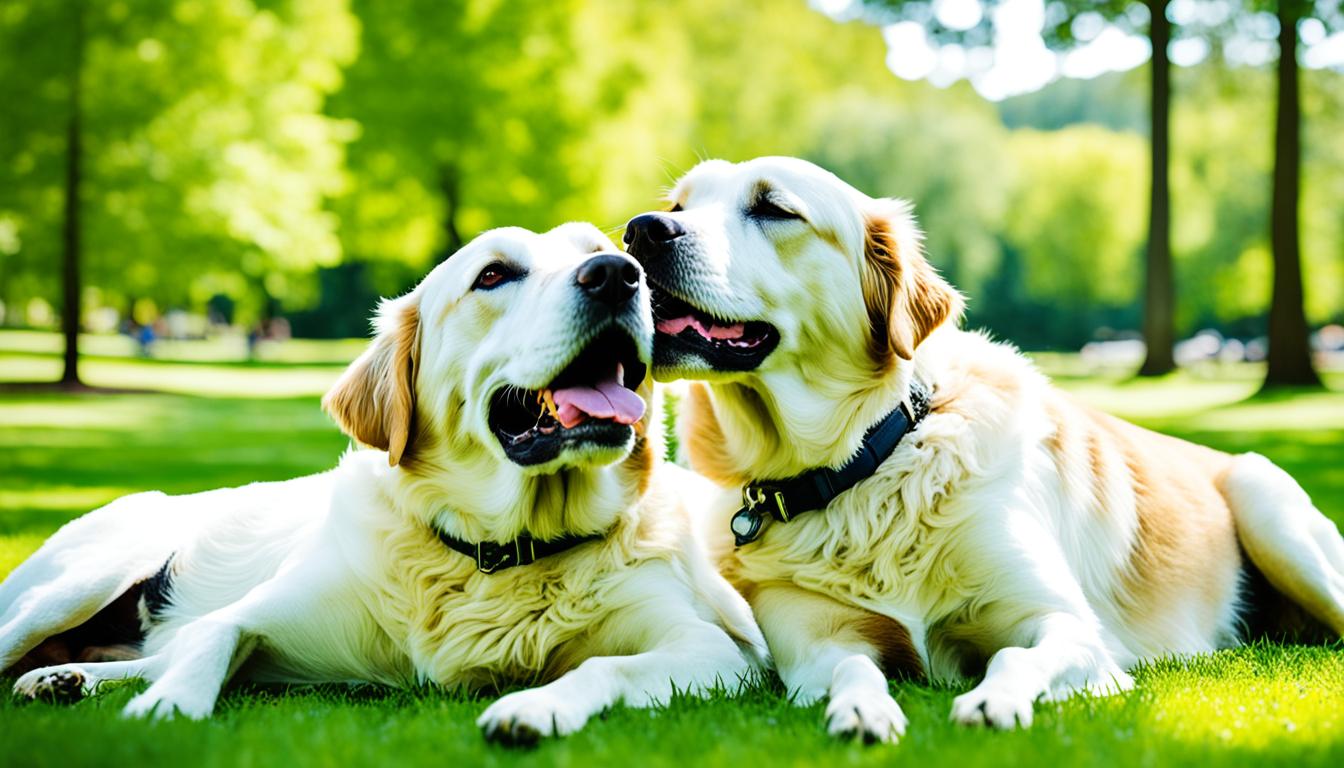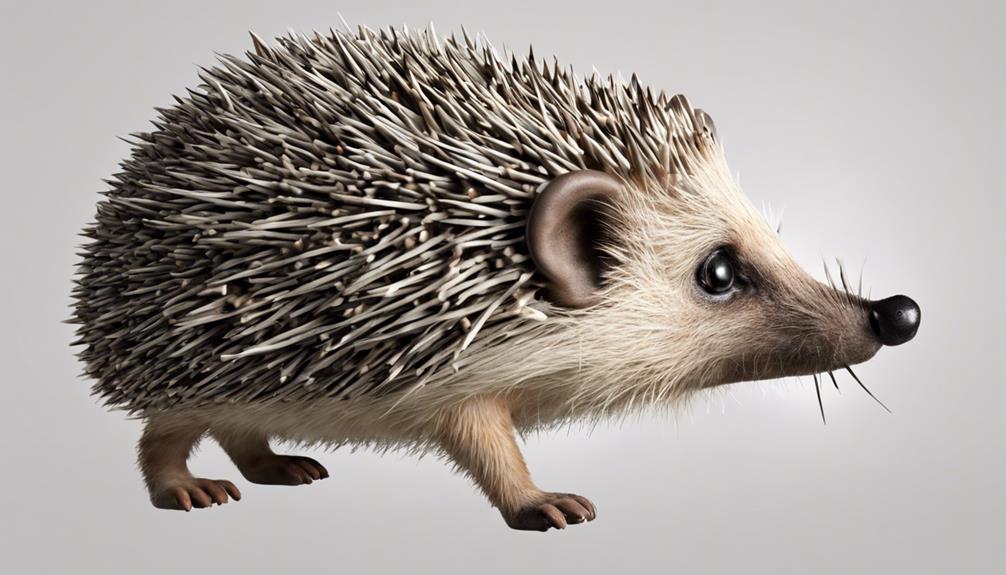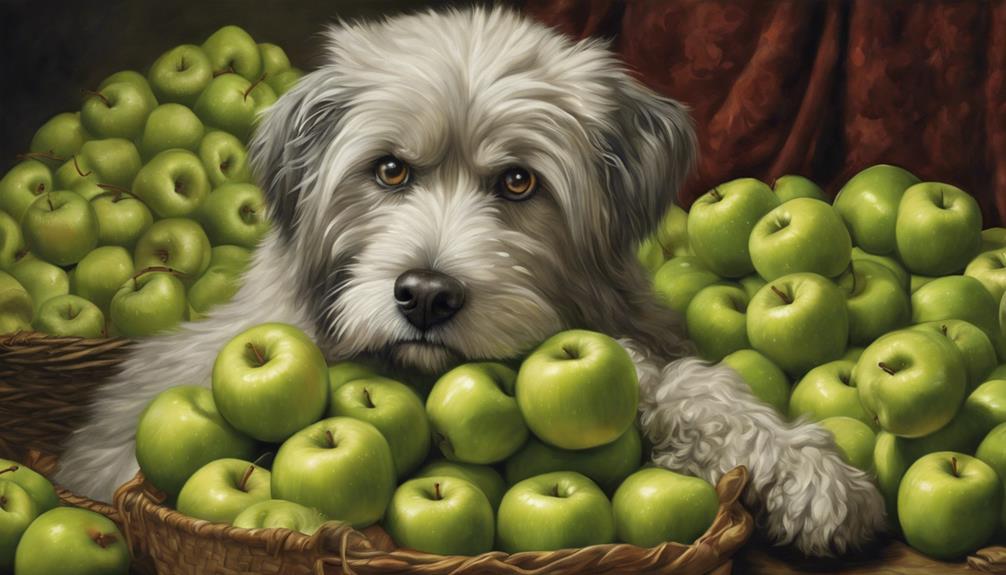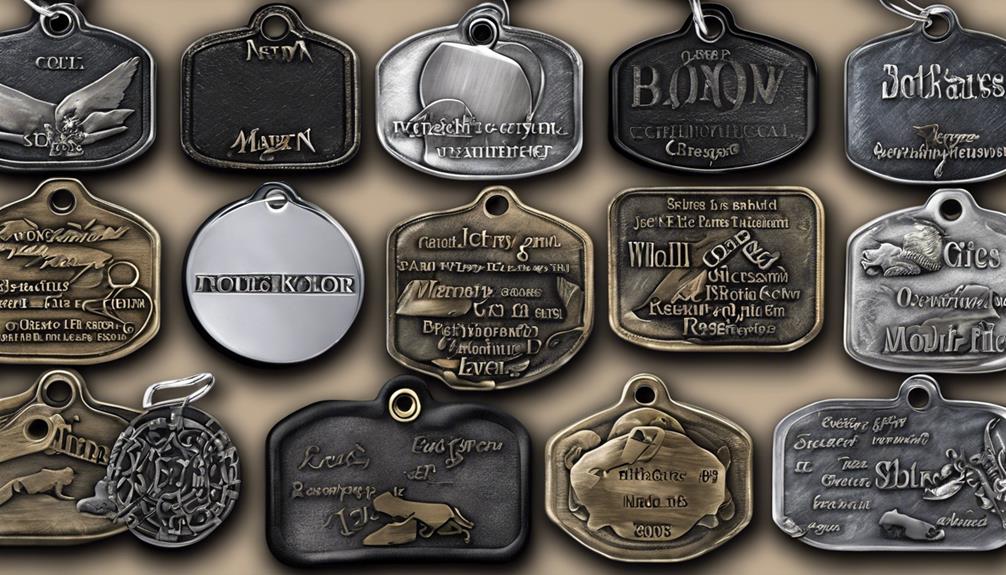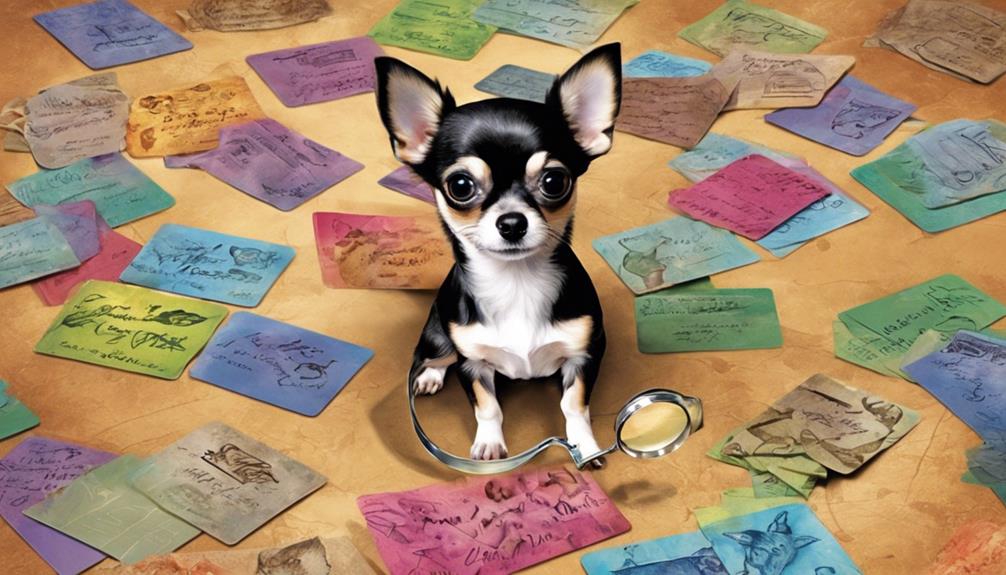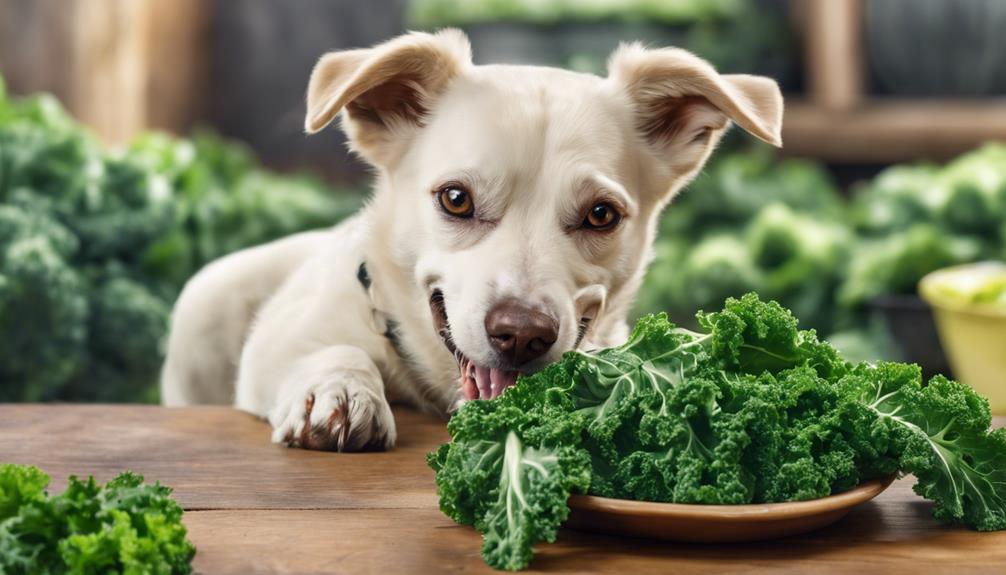Are you aware that some dog breeds are naturally gentle and are considered to be the least aggressive? If you’re seeking a furry companion who will offer affection, companionship, and a peaceful atmosphere, these breeds are ideal for you. This article will delve into the fantastic realm of the least aggressive dog breeds, outlining their temperament, traits, and suitability as family pets.
Key Takeaways
- Choosing a non-aggressive dog breed can create a peaceful and loving environment in your home.
- Gentle dog breeds are known for their calm, amiable, and approachable personalities.
- The ease of training and adaptability of non-aggressive breeds make them great choices for families.
- Non-aggressive dogs prioritize the safety of their owners, leading to fewer incidents of aggression.
- Owning a non-aggressive breed can help you avoid legal hassles associated with owning aggressive dogs.
Understanding Dog Aggression
Dog aggression is a complex behavior that can stem from a variety of factors. It’s important to differentiate between aggressive behaviors and reactive behaviors that are a response to environmental stimuli. In this section, we will delve into the different types of aggression in dogs and explore the causes behind their aggressive tendencies.
Types of Dog Aggression
There are several distinct types of dog aggression that owners may encounter:
- Territorial aggression: Dogs may display aggression to protect their perceived territory, such as their home or backyard.
- Protective aggression: Dogs may exhibit protective behaviors towards their owners, family members, or possessions.
- Fear aggression: Dogs who are fearful may display aggression as a defense mechanism.
- Redirected aggression: Dogs may redirect their aggression towards another target when their initial target is inaccessible.
By understanding the different types of aggression, owners can identify the underlying causes and find appropriate behavioral interventions.
Causes of Aggression in Dogs
Aggression in dogs can arise from various factors, including:
- Genetic predisposition: Certain breeds may have a higher likelihood of exhibiting aggressive behaviors due to their genetic background.
- Environmental factors: Poor socialization, traumatic experiences, or abusive treatment can contribute to the development of aggression.
- Medical issues: Pain or discomfort caused by underlying health conditions can lead to aggression in dogs.
It’s crucial to consult with a professional veterinarian or animal behaviorist to determine the root causes of aggression in dogs and establish an appropriate treatment plan.
“Understanding the causes and types of dog aggression enables owners to address the issue effectively and promote a harmonious relationship with their furry companions.”

| Type of Aggression | Causes |
|---|---|
| Territorial aggression | Perceived threat to territory |
| Protective aggression | Desire to protect owners or possessions |
| Fear aggression | Response to fear or perceived threats |
| Redirected aggression | Instigating aggression towards a different target |
What Are The Criteria for Non-Aggressive Breeds?
When choosing a non-aggressive dog breed, several criteria should be considered. These factors play a significant role in determining a breed’s temperament, social behavior, and training ease. By understanding these criteria, you can make an informed decision and find a dog that fits well with your lifestyle and preferences.
Temperament
The temperament of a dog breed is crucial when considering their level of aggression. Non-aggressive breeds typically have calm, amiable, and approachable personalities. They are known for their gentle nature and ability to get along well with other animals and people. These breeds are less likely to display aggressive behaviors when faced with challenging situations.
Socialization
Socialization plays an important role in determining a dog’s aggression levels. Breeds that are naturally sociable tend to be less aggressive. Through proper socialization during their early years, dogs learn how to interact with different people, animals, and environments. This exposure helps them develop the necessary social skills and reduces the likelihood of aggressive behavior later in life.
Training Ease
The ease of training is another key factor to consider when choosing a non-aggressive breed. Non-aggressive breeds are typically intelligent, adaptable, and quick learners. They are more willing to follow commands and are eager to please their owners. With consistent training and positive reinforcement, these breeds can easily learn and understand desired behaviors, reducing the likelihood of aggressive tendencies.
Dog Size
The size of the dog can also contribute to their level of aggression. Generally, larger or medium-sized breeds tend to be more laid-back and less prone to aggressive behavior compared to smaller breeds. However, it is important to note that aggression is not solely determined by size, and individual temperament should always be considered.
“When choosing a non-aggressive breed, assessing their temperament, socialization, training ease, and size can help you find a dog that will be a gentle and loving companion for you and your family.”
To provide a better understanding, here is a table summarizing the criteria for non-aggressive dog breeds:
| Criteria | Description |
|---|---|
| Temperament | Calm, amiable, and approachable personalities |
| Socialization | Naturally sociable and well-socialized |
| Training Ease | Intelligent, adaptable, and quick learners |
| Dog Size | Larger or medium-sized breeds are generally more laid-back |
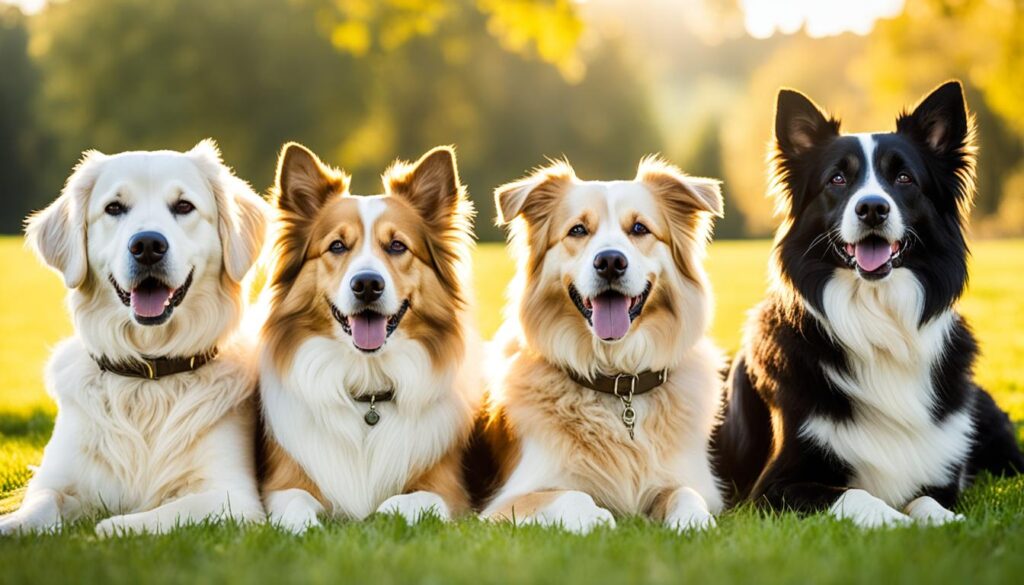
By considering these criteria when selecting a dog breed, you can increase the chances of finding a non-aggressive companion that will bring joy and harmony to your home.
Why Choose a Non-Aggressive Dog Breed?
Non-aggressive dog breeds offer several benefits to their owners. Their calm and gentle nature creates a peaceful environment in the home, allowing for a harmonious companionship.
These breeds also require less training compared to aggressive dogs, as they have a lower level of pent-up energy and aggression. With non-aggressive dogs, you can spend less time and effort on extensive training sessions and more time enjoying their company.
“Non-aggressive dogs prioritize the safety of their owners and are less likely to exhibit aggressive behaviors.” – Dr. Emily Thompson, Animal Behavior Specialist
Choosing a non-aggressive breed ensures the safety of your family and visitors. Unlike aggressive breeds, non-aggressive dogs are not prone to sudden outbursts or unpredictable behaviors. You can have peace of mind knowing that your furry companion will not pose a threat to others.
Additionally, owning a non-aggressive dog can help you avoid legal hassles. Aggressive dogs may be subject to breed-specific legislation and restrictions, which could result in added legal responsibilities and potential liability. By choosing a non-aggressive breed, you can enjoy the companionship of a loving pet without worrying about legal complications.
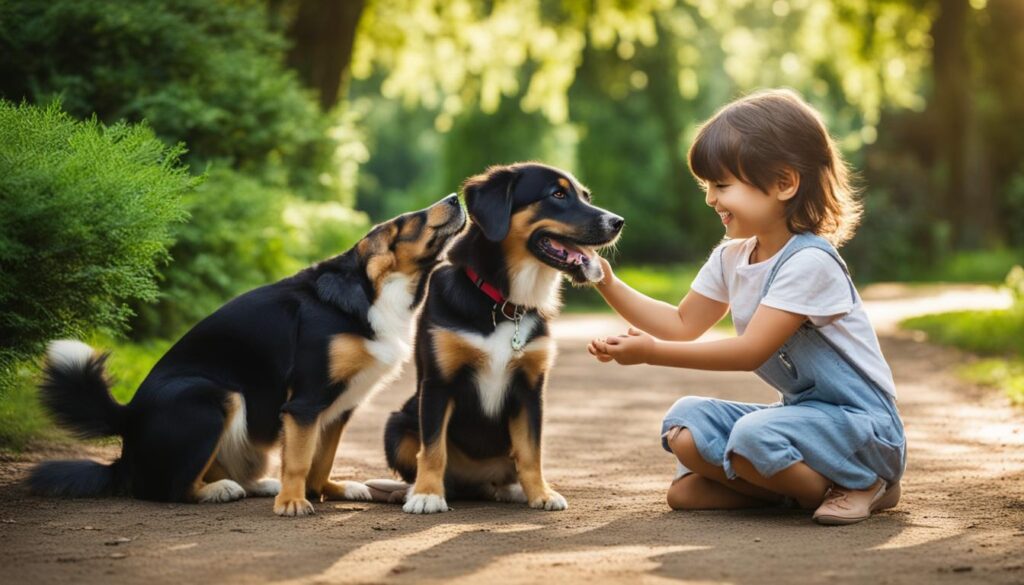
The Benefits of Non-Aggressive Dogs:
| Benefits | Description |
|---|---|
| Peaceful Environment | Non-aggressive dogs create a peaceful atmosphere at home, promoting a sense of tranquility and harmony. |
| Less Training Required | Non-aggressive breeds have a lower level of pent-up energy and aggression, resulting in reduced training needs. |
| Assured Safety | Non-aggressive dogs prioritize the safety of their owners and are less likely to exhibit aggressive behaviors. |
| No Legal Hassles | Choosing a non-aggressive breed can help avoid legal complications associated with owning aggressive dogs. |
Top 5 Non-Aggressive Dog Breeds
When it comes to finding a gentle and non-aggressive companion for your family, certain dog breeds stand out for their friendly and sociable nature. These breeds are known for their temperament, loyalty, and adaptability, making them perfect additions to any household. Here are the top 5 non-aggressive dog breeds to consider:
1. Golden Retriever
The Golden Retriever is a beloved family dog known for its friendly and sociable nature. These dogs are not only gentle but also highly intelligent and eager to please, making them excellent family companions. With their loyalty and gentle disposition, Golden Retrievers often form deep bonds with their human family members.
2. Labrador Retriever
Labrador Retrievers are energetic, playful, and gentle, making them popular choices for families. These friendly and outgoing dogs excel in social situations and can get along well with people of all ages, including children. Their intelligence and trainability add to their appeal as family pets.
3. Basset Hound
Basset Hounds have a calm and easy-going demeanor that makes them highly suitable for families and seniors. These dogs are known for their friendly nature and patience. Despite their droopy ears and sad eyes, Basset Hounds are cheerful and devoted companions.
4. Bernese Mountain Dog
Bernese Mountain Dogs are gentle giants known for their patience and loyalty. These large and friendly dogs are great with children and can adapt well to various living environments. Bernese Mountain Dogs are not only gentle in nature but also excellent watchdogs, making them perfect for families seeking both companionship and security.
5. Beagle
Beagles are social, intelligent, and friendly dogs that make wonderful family pets. Their loving and gentle disposition, combined with their high adaptability, makes them a popular choice for families with children. Beagles enjoy human companionship and thrive in an active and loving environment.
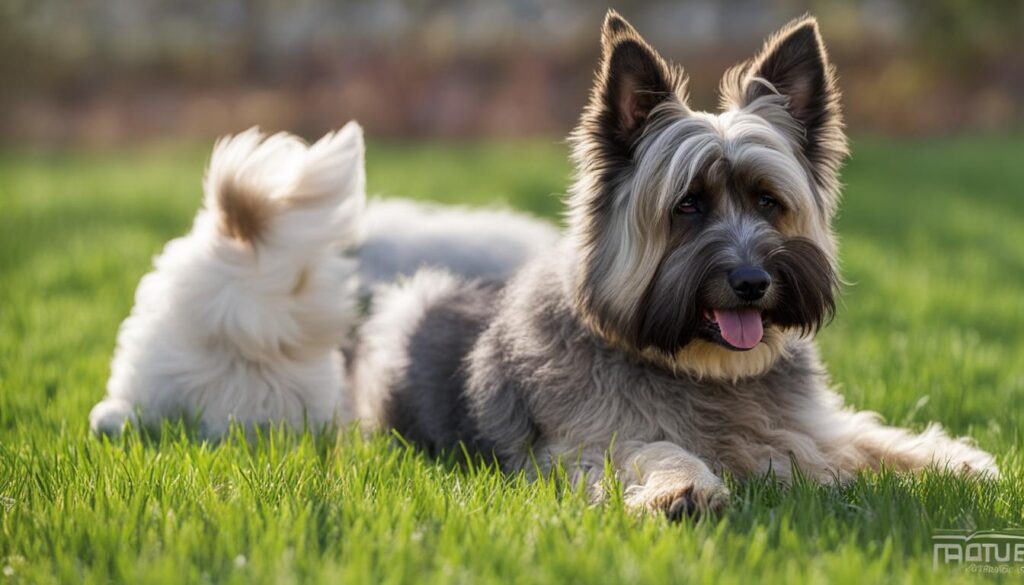
These top 5 non-aggressive dog breeds offer a combination of gentleness, loyalty, and adaptability that make them perfect companions for families. Whether you’re looking for a playful and energetic dog like the Labrador Retriever or a calm and easy-going companion like the Basset Hound, there is a non-aggressive breed out there to suit your family’s needs.
Top 5 Non-Aggressive Dog Breeds (Continued)
In the previous section, we explored some of the gentlest dog breeds. Now, let’s continue our journey and discover five more non-aggressive breeds that make excellent companions.
Bulldog
Despite their muscular build and imposing appearance, Bulldogs are known for their sweet and adaptable nature. They are a popular choice for families and individuals seeking a loyal and affectionate companion. Bulldogs are great with children and have a calm demeanor, making them a wonderful addition to any household.
Newfoundland Dog
Considered one of the gentlest and most protective breeds, Newfoundland Dogs are known for their immense size and loving nature. These gentle giants are highly trainable and have a natural instinct to care for their family. Whether it’s playing with children or being a comforting presence, Newfoundland Dogs bring joy and affection to their owners.
Greyhound
Greyhounds are often associated with speed and agility, but they are also known for their calm and laid-back temperament. These couch potatoes enjoy a peaceful environment and make great companions for those seeking a relaxed and low-energy dog. Despite their racing background, Greyhounds are docile and love nothing more than lounging on the sofa with their owners.
Boxer
Boxers are known for their fun-loving and loyal nature. These energetic dogs are easily adaptable to various situations and are great with families. Boxers are highly sociable and thrive on human companionship. Their playful demeanor and unwavering loyalty make them cherished members of the family.
Cavalier King Charles Spaniel
Cavalier King Charles Spaniels are small to medium-sized dogs with a sweet disposition and an adaptable nature. These dogs are known for their friendly and affectionate personality, making them an ideal choice for families and individuals alike. Cavalier King Charles Spaniels get along well with children and other pets, bringing joy and companionship to their owners’ lives.
Each of these non-aggressive breeds offers a unique set of qualities, ensuring a loving and peaceful companionship. Whether you’re looking for a confident Bulldog, a protective Newfoundland Dog, a calm Greyhound, a loyal Boxer, or a friendly Cavalier King Charles Spaniel, one of these breeds is sure to steal your heart.
| Breed | Description |
|---|---|
| Bulldog | A muscular and robust breed with a sweet and adaptable nature. |
| Newfoundland Dog | A gentle giant known for its immense size, protectiveness, and loving nature. |
| Greyhound | A calm and laid-back breed that enjoys a peaceful environment. |
| Boxer | A fun-loving and loyal breed that easily adapts to various situations. |
| Cavalier King Charles Spaniel | A small to medium-sized dog with a sweet disposition and an adaptable nature. |
These non-aggressive breeds prove that size, appearance, and stereotypes can be misleading. Each one offers a unique combination of traits that make them wonderful companions for individuals and families alike.
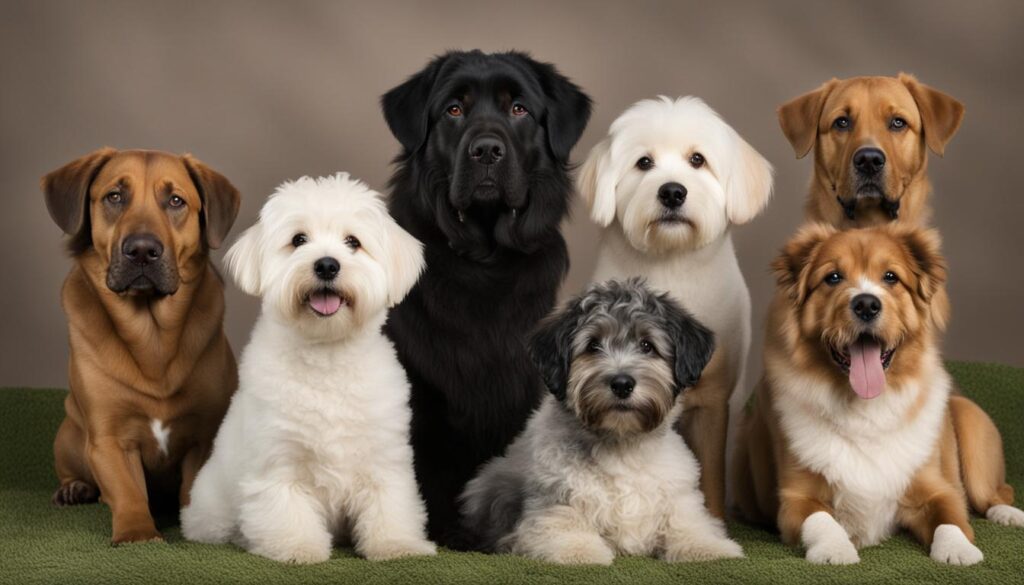
Top 5 Non-Aggressive Dog Breeds (Continued)
Continuing our exploration of non-aggressive dog breeds, let’s discover five more gentle and amiable companions that will bring joy and warmth to your home.
Pug
The Pug is a small, affectionate, and sociable breed known for its easy-going nature. With their wrinkled faces, expressive eyes, and playful personality, Pugs make wonderful family pets. They are social creatures that get along well with children and other animals, making them a delightful addition to any household.
Irish Setter
Irish Setters are known for their vibrant red coat, friendly nature, and love for outdoor activities. They are fun-loving, kind, and thrive on human companionship. Irish Setters are highly sociable and make excellent playmates for children. With their joyful disposition and eagerness to please, they bring happiness and laughter wherever they go.
Whippet
Descended from Greyhounds, Whippets are the epitome of grace and charm. These gentle and friendly dogs are known for their calm and laid-back temperament. Whippets are ideal companions for individuals or families seeking a quiet and well-mannered pet. They are content to curl up on the couch with you or accompany you on leisurely walks.
St. Bernard
The St. Bernard is a calm and relaxed gentle giant that often takes on the role of a “nanny dog” due to their gentle nature around children. Despite their massive size, St. Bernards are incredibly patient, loving, and devoted to their families. They are excellent therapy dogs and provide comfort and support to those in need.
Bichon Frise
Bichon Frises are small dogs with a friendly, easy-going, and sociable disposition. They are known for their cheerful nature and make great companions for families, seniors, and singles alike. Bichon Frises thrive on human interaction and enjoy participating in various activities, making them a delightful addition to any household.
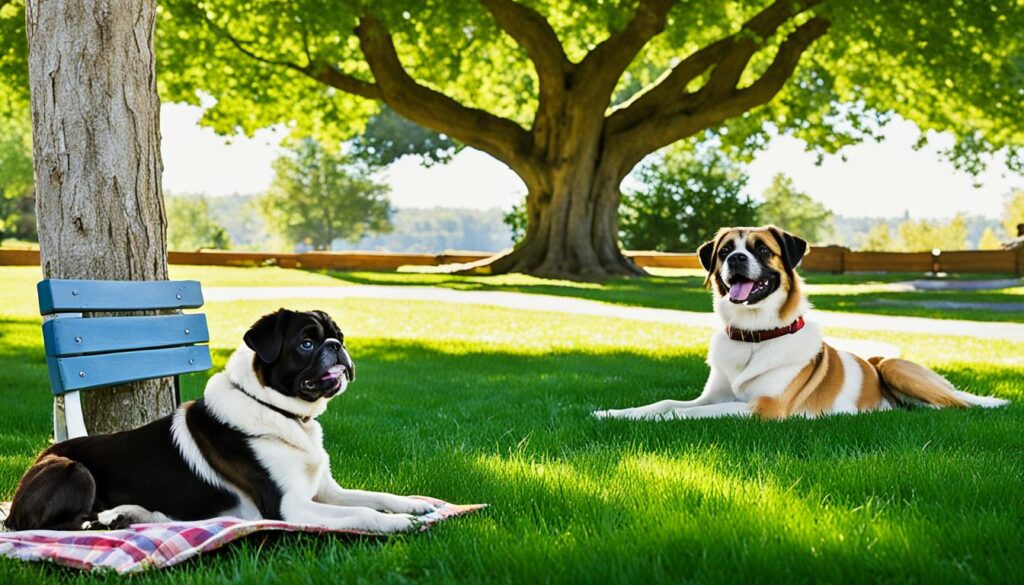
These non-aggressive dog breeds, including the Pug, Irish Setter, Whippet, St. Bernard, and Bichon Frise, exemplify the gentle and loving qualities that many families desire in their canine companions. Whether you prefer a small or large breed, there is a non-aggressive dog waiting to bring happiness and unconditional love into your life.
Conclusion
Choosing a non-aggressive dog breed is a great way to ensure a peaceful and loving pet. These least aggressive dog breeds make wonderful companions for families seeking gentle and friendly pets. From Golden Retrievers and Labrador Retrievers to Basset Hounds and Bernese Mountain Dogs, there is a wide variety of breeds to choose from. Bulldogs, Greyhounds, Boxers, and Cavalier King Charles Spaniels also make excellent non-aggressive pets. Whether you prefer a large or small breed, there is a gentle companion out there for everyone.
By welcoming one of these peaceful pets into your home, you can enjoy their affectionate and sociable nature. These dogs will become cherished members of your family, providing you with companionship and love. Revel in the peaceful and loving presence of these least aggressive dog breeds, knowing that you have chosen a gentle companion who will bring joy to your life.
So, if you’re considering adding a new furry friend to your family, look no further than these least aggressive dog breeds. With their calm temperament and gentle nature, they will create a tranquil and harmonious environment in your home. Choose one of these peaceful pets and experience the joys of having a loving and loyal companion by your side.
